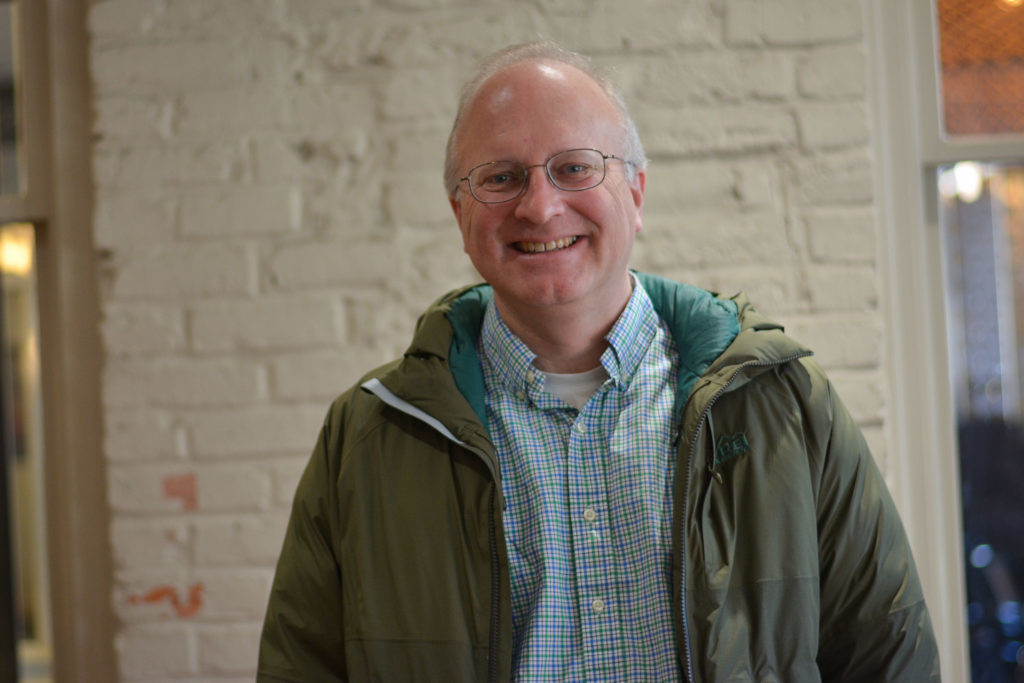Faculty are turning their attention to investigating natural disaster prevention amid a push for more interdisciplinary sustainability research.
Officials said faculty members are working on research projects with a focus on climate change and natural disasters as the United States tackles extreme incidents like the Camp fire this year – the deadliest fire to occur in California – and Hurricane Florence, which hit North and South Carolina in September and caused more than $20 million in damages. Faculty members said the research could better address the impacts of climate change and natural disasters on cities.
Robert Orttung, the director of research for Sustainable GW, said leaders in the program are meeting with faculty members to gauge interest in interdisciplinary research about natural disasters, like large rainstorms and fires. He said research focusing on these catastrophes is “crucial” because of increasingly “intense” problems caused by climate change.
“It is not simply a matter of rebuilding houses or businesses that are lost during a storm or fire,” Orttung said. “It is about figuring out policies and technologies that will allow people to better prepare for and survive any incident.”
He said Sustainable GW is applying for a GW Cross Disciplinary Research Fund grant – a fund through the Office of the Vice President for Research that supports partnerships between researchers and initiatives in two or more different departments – to support conferences and publications.
He said the success of projects will be assessed academically based on the publication and success of research articles on topics like product supply chains and urban sustainability. On a larger scale, officials will measure how the projects are used to shape federal, state and local policies, he said.
“Of course, if we can show fewer deaths and property loss from our research efforts, that would be the best metric of all,” he said.
Orttung said he has not seen any new research projects based on the Fourth National Climate Assessment released on Nov. 23, which said the economy will take a hit because of climate change. But he said the report is a “call to arms” showing the necessity of efforts to save the planet.
Interdisciplinary research has been a priority since the sustainability collaborative was rebranded as Sustainable GW earlier this year.
Meghan Chapple, the director of the Office of Sustainability, said GW is a part of We Are Still In, a bipartisan coalition pledging to meet the goals of the Paris Agreement – a United Nations agreement to mitigate the effects of climate change – despite President Donald Trump’s announcement in June 2017 that the United States would exit the accord.
She said GW is also part of the American College and University Presidents’ Climate Commitment, adding that the University published a Climate Action Plan in 2010 committing to becoming carbon neutral by 2040.
“Globally, as well as locally, mitigating and adapting to climate change is one of the central challenges of our time,” Chapple said.
Tara Scully, the director of the sustainability minor, declined to comment.
Dmitry Streletskiy, an associate professor of geography and an assistant professor of international affairs, said he is working on two projects about the Arctic, including a broad project funded by the Belmont Forum and another project focusing on urban sustainability. He said working with different fields of science and social science is crucial to ensure that researchers can account for the multiplicity of stakeholders in climate change.
“Geography provides a very nice bridge because it’s inherently an interdisciplinary science, but obviously the issues are so complex and there are so many things that obviously none of those single disciplines is able to address it by itself,” Streletskiy said.
Nikolay Shiklomanov, an associate professor of geography and international affairs, said the effects of climate change are more pronounced in the Arctic because of melting permafrost – a subsurface layer of soil that remains frozen. He said the research relates to how humans and climate change have a codependent relationship.
“You cannot really look at those things separately especially when you are considering the urban systems where everything is sort of colliding,” Shiklomanov said.
He said researchers are currently analyzing data collected at 200 sites in the Arctic over the course of 25 years. Researchers hope to incorporate the information in algorithms used to predict the climate, he said.
The University also made national headlines earlier this year for research on natural disasters after the Milken Institute School of Public Health released a study finding that nearly 3,000 people died in Puerto Rico as a result of Hurricane Maria.
Donna Attanasio, a professorial lecturer in law and the senior adviser for energy law programs, said she worked with other professors and a group of students to research power grids. She said research concerning rebuilding power grids stretches across multiple fields, including engineering, economics and law.
“Everything to do with the electric grid is interdisciplinary,” Attanasio said.





